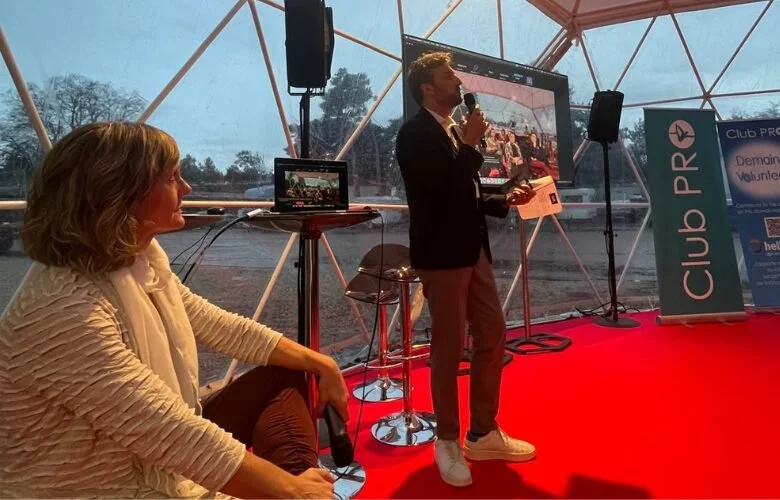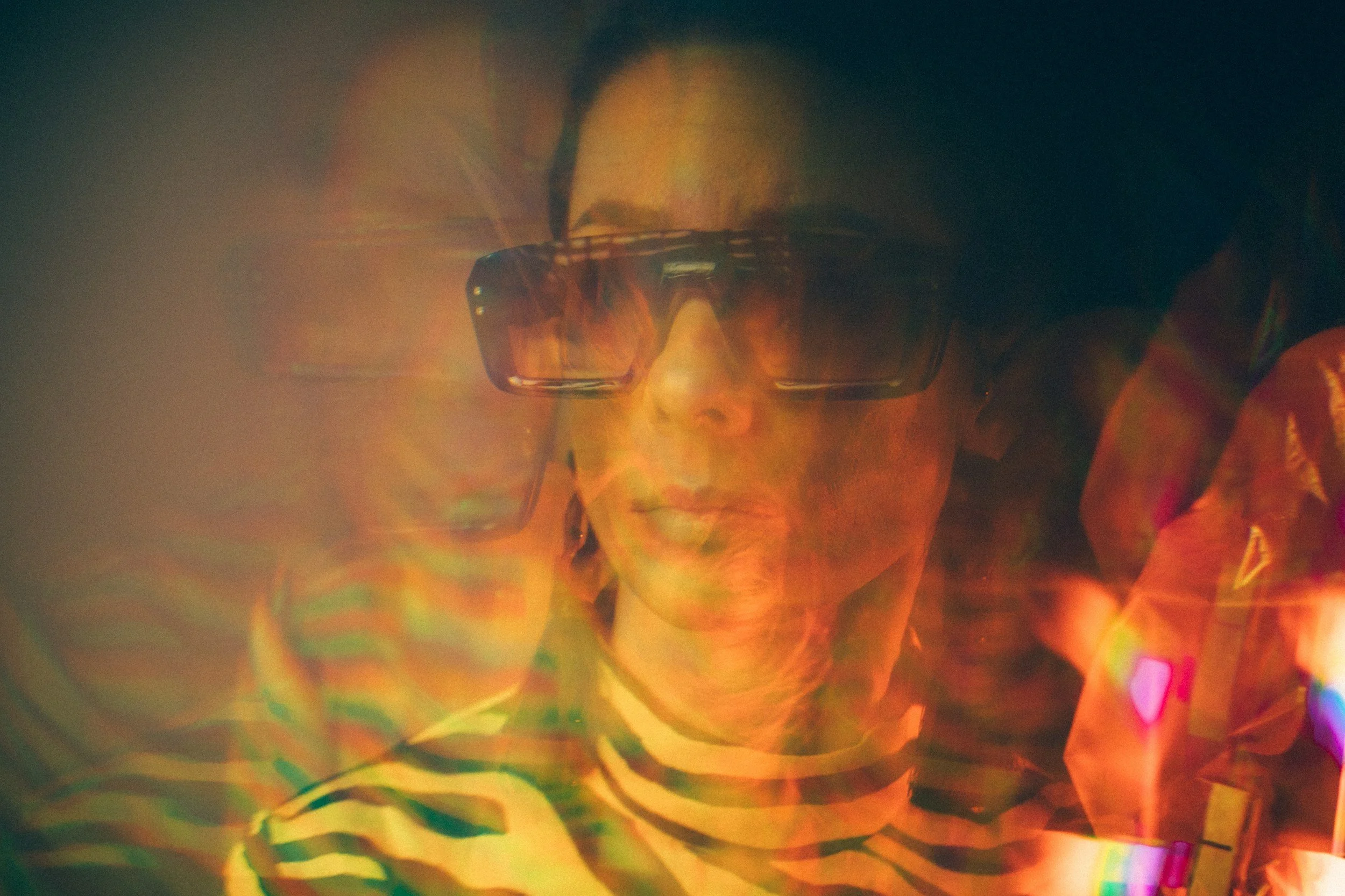
stAgewIre
AI in the Arts Newsfeed
DeVos Institute: A3 Preparing Arts Organizations for an AI-Driven Future
The DeVos Institute is helping arts organizations navigate AI with strategic guidance and ethical frameworks—ensuring technology enhances, not replaces, creative missions.
How Generative AI Can Boost Productivity for Highly Skilled Workers
Generative AI is enhancing productivity for highly skilled workers, helping them complete tasks faster and with greater quality while allowing more time for strategic work.
AI and Nonprofits: It’s No Longer “If” or “When,” But “How”
For nonprofits, AI is no longer a question of “if” or “when.” This article explores how organizations can integrate AI to boost efficiency while staying aligned with their mission.
“The Robot Dog” Play Highlights the Limits of AI Knowledge
The Robot Dog explores the limits of AI, highlighting the emotional, moral, and intuitive knowledge that machines may never truly grasp. Photo by Tiffany Garvie
Artist of the Year? Exploring AI’s Role in Creativity
Can ChatGPT be crowned “Artist of the Year”? As AI transforms creative fields, the debate continues: is AI a collaborator in art or a contender for the title?
AI Is the Expectation: Shaping the Future of Arts Marketing
AI is reshaping arts marketing, offering personalized audience engagement and predictive insights. TRG Arts highlights the importance of using AI to enhance, not replace, human connection.
Creative Unions Warn: “The Clock Is Ticking” on AI Safeguards
Creative unions are sounding the alarm on AI, warning that without urgent safeguards, artists risk exploitation. With tech evolving fast, protections must catch up.
Adrien Brody Credits AI for His Oscar-Winning Role
Adrien Brody credits AI for helping shape his Oscar-winning performance, calling it a powerful creative tool that deepened his character work without replacing human artistry.
Andrew Lloyd Webber and Tom Stoppard Criticize “Unnecessary” AI Copyright Law
Andrew Lloyd Webber and Tom Stoppard push back against proposed AI copyright laws, warning they could devalue human creativity and artistic ownership in theatre and beyond.
National Youth Theatre Innovates with AI for Creative Growth
The National Youth Theatre is using AI to empower young creatives—enhancing storytelling, collaboration, and accessibility without compromising artistic integrity.
AI in the Arts: A Strategic and Ethical Approach
AI is transforming the arts, but how can we ensure it enhances rather than replaces human creativity? A strategic and ethical approach is key to harnessing AI responsibly.
The Risks of Letting AI Write for Us
AI can write, but should it replace human creativity? This article explores the risks of AI-generated writing, from authenticity concerns to the erosion of original thought.
Africa’s First AI-Generated Opera Debuts at Baxter Theatre
Can AI create opera with the same emotional depth as human composers? Autoplay, Africa’s first AI-generated opera, debuts at Baxter Theatre, exploring the fusion of technology and artistry.
AI in Theatre Lighting: Are Human Followspot Operators Being Replaced?
Photo by Shutterstock - AI-powered followspot systems are changing theatre lighting, but at what cost? While automation offers precision, can it truly replace the adaptability and artistry of a human operator?
Theatre Takes on the Apocalypse: Plays About the End of the World
Photo by Alex S.K. Brown
From climate crises to political chaos, theatre is exploring the apocalypse like never before. These plays challenge audiences to confront deep existential questions while reflecting today’s anxieties and resilience.
Can AI Be a Prompt, Not an Answer, in Creative Work?
Can AI enhance creativity without overshadowing human ingenuity? Experts at RIT examine AI’s role as a tool for inspiration rather than a replacement for artistic expression, sparking new ideas while preserving authenticity.
AI in Live Performance: Creative Revolution or New Frontier?
Is AI transforming live performance for the better, or does it risk overshadowing human creativity? From AI-generated visuals to interactive storytelling, performers and producers are navigating the fine line between innovation and authenticity in this evolving landscape.
The Impact of AI on Pittsburgh’s Arts Scene
Photo by Pittsburg Public Theater
As AI reshapes creative industries, Pittsburgh’s Greater Arts Council is addressing both the promise and pitfalls of artificial intelligence in the arts. Can AI be a tool for innovation without diminishing human creativity? The council is working to ensure artists remain at the forefront of this evolving landscape.
Equity Demands AI Data Rights for Performers
Equity, the trade union for performers, has urged entertainment industry leaders to prioritize enforceable data rights for artists as AI becomes more integrated into the creative process. The union emphasizes that performers' voices, likenesses, and digital avatars must not be exploited without their explicit consent. Equity calls for collective agreements and regulatory frameworks to protect artists from AI misuse, ensuring fair compensation and creative control in an evolving digital landscape.
Experiential Theatre: Revolutionizing Live Performance
The world of live performance is evolving, and experiential theatre is leading the way. Imagine being more than just an audience member—immersing yourself in the story, exploring interactive environments, and shaping the narrative as it unfolds. Productions like Sleep No More and Then She Fell are transforming traditional theatre into unforgettable adventures, blending storytelling with discovery and creating unique, personal connections. As experiential theatre grows, it’s redefining what it means to be part of a performance. Curious about this game-changing trend? Read more and step into the story.




















